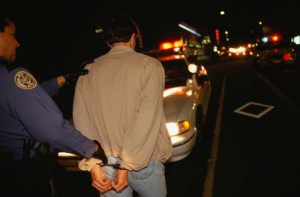Michigan Court Says You can Drink and Drive In Your Driveway
Ever want to have a little party in your car? Gino Rea was arrested and charged with driving while intoxicated from operating his vehicle…in his driveway. Police were responding to a noise complaint when they found Rea sitting in his vehicle listening to music. That’s right, he was just sitting there, but after coming back for a 3rd time to request Rea to turn down the loud music, the officer saw Rea back out of his garage and down his driveway.
Now, Rea never made it past the end of his driveway and only went about 25 feet before he stopped, but was ultimately charged with operating a vehicle while intoxicated. In fact, he never even made it past the sidewalk crossing through his driveway. A trial judge ultimately dismissed Rea’s case and the Michigan Court of Appeals agreed with the lower court’s decision.
The Court’s decision to dismiss Rea’s case was ultimately hinged on the actual wording of the applicable Michigan statute. The law states a driver cannot operate a vehicle while intoxicated “upon a highway or other place open to the general public or generally accessible to motor vehicles, including an area designated for the parking of vehicles”. The court determined a driveway was not considered generally accessible to the public and, therefore, Rea couldn’t have violated the statute. 
I imagine Michigan legislature will ultimately reword the statute to get around the Court’s ruling, but the case does raise some interesting issues that happen quite frequently. What happens when a driver operates a vehicle on a highway or other place open to the general public and is then pulled over in his or her own driveway? What about when someone gets charged with drunk driving just for sitting in their car without any keys in the ignition?
Traffic stops are Terry stops
The famous Terry v. Ohio tells us that traffic stops are technically a subset of a Terry stop, which means an officer must have reasonable suspicion a crime occurred before a motor vehicle can be legitimately stopped. Reasonable suspicion doesn’t mean the officer has to have probable cause to make an arrest, it just means they can stop a driver for the purpose of investigating possible criminal behavior.
So the question really comes down to whether the officer had enough reason to pull over a driver to begin with. Despite beliefs otherwise, an officer doesn’t have to pull you over immediately upon the 1st notice of a traffic offense. There could be a number of reasons why an officer would wait to pull you over until you reached your driveway. Officers are allowed to wait for a safe area to pull you over and officers are allowed to follow you for miles to observe whether you’ve committed any other traffic offenses along the way. It honestly could be a number of reasons. Just because you make it to your driveway doesn’t mean an officer can’t still pull you over.
“I Can’t Get Pulled Over In My Driveway…It’s My Personal Property.”
That’s a common misconception and, frankly, incorrect. Many get upset at the thought of being pulled over in their driveway, as it’s personal property. There’s less of an expectation of privacy when any citizen has access to your driveway.
When you’re driving on a public roadway and an officer has reasonable suspicion to believe you’ve committed a crime on that public roadway, pulling into your personal property doesn’t absolve you of that crime nor does it mean you’re off the hook. It does, however, get a little trickier if you live on gated property where the general public has no access at all, but that still wouldn’t absolve any criminal wrongdoing.
So what does that mean for Michigan? If the Michigan court found a driveway isn’t generally accessible to the public, then how can an officer pull anyone over in his or her driveway on private property? Michigan may say an officer can’t, but I think the major difference lies within the Court’s reasoning.
The Court reasoned that Rea’s driveway wasn’t generally accessed by the public and therefore, he wasn’t posing the same danger to society by driving drunk as he would on a public roadway, but it’s not necessarily that the public couldn’t access the driveway. It’s a different angle to the argument when you’re talking about driving drunk in areas generally accessible to the public versus the general public having access to your driveway for an officer to pull you over.
“I’ll Just Sleep It Off In My Car.”
That’s probably not always the best idea. Certainly, it’s a better idea than actually deciding to drink and drive, but it doesn’t necessarily keep you off the hook.
“Operating” your vehicle can certainly mean just sitting in the driver’s seat even if the keys aren’t in the ignition. It depends on the state’s law, but it is possible to be convicted for driving under the influence while sleeping off a hangover in your car. Other states, like Nebraska, say you can’t be charged for being drunk and simply being in your car.
Getting In the Driver’s Seat Can Cost You Big
Had the circumstances been different, perhaps had Rea driven out on to the actual road, the decision could have been different. As you can see from the examples above, every state is different so it’s important to know your own state’s laws regarding these issues. An attorney that specializes in DUI and OVWIs will know the specifics of your state’s law.


Comments